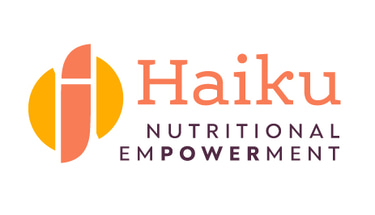Thanks, But No Thanks
How to Handle Unsolicited Diabetes Advice
Kelly Robers, RDN, CDCES
9/16/20253 min read


If you live with diabetes, you’ve probably heard it all:
“Just drink apple cider vinegar and you won’t need insulin anymore.”
“My cousin cured his diabetes with cinnamon.”
“Are you sure you should be eating that?”
Sound familiar? People mean well (most of the time), but unsolicited advice can feel frustrating, dismissive, or simply wrong. So how do you respond without starting a family feud at the dinner table? Let’s talk about a few common myths, the truth behind them, and some graceful ways to reply.
Myth #1: “Cinnamon will cure your diabetes.”
Cinnamon is delicious in oatmeal, coffee, and apple pie, but it’s not a cure for diabetes. Some studies show it may have a small effect on blood sugar , but it’s nowhere near strong enough to replace medications, insulin, or a healthy lifestyle plan.
What you could say:
“Cinnamon tastes great, but it’s not a replacement for my treatment plan. My care team helps me with that.”
“If cinnamon were a cure, I think the pharmacies would be out of business by now!”
Myth #2: “Just drink apple cider vinegar.”
Apple cider vinegar has been hyped up for everything from weight loss to glowing skin. While it may slightly lower blood sugar after a high-carb meal, it’s not a safe or reliable treatment on its own — and too much can hurt your teeth and stomach.
What you could say:
“I’ll save my apple cider vinegar for salad dressing. My doctor and I already have a plan that works for me.”
“Vinegar might be good for cucumbers, but it’s not going to cure diabetes.”
Myth #3: “Just eat low glycemic index fruit and you’ll be fine.”
Lower glycemic index (GI) foods indeed raise blood sugar more slowly, but diabetes is about more than just one number. Even low-GI fruit still contains carbs that affect blood sugar, and balance is what matters most.
What you could say:
“I do enjoy fruit, but I also count carbs and balance it with protein and fiber. There’s more to diabetes management than just GI.”
“That’s a neat idea! My dietitian helps me find what works best for me.”
Myth #4: “Just lose weight and your diabetes will go away.”
This one stings because it oversimplifies a complex condition. Weight management can improve blood sugar control, but diabetes doesn’t vanish just because the scale changes. Type 1 diabetes is not preventable at all, and type 2 is influenced by genetics, environment, and more than body size alone.
What you could say:
“Weight is only one piece of the puzzle. I’m focusing on overall health, not just the scale.”
“If it were that simple, don’t you think we’d all have done it already?”
Myth #5: “You shouldn’t be eating that!”
Ah, yes, the food police. Whether it’s bread, pasta, or a slice of cake at a birthday party, someone always seems ready to comment. Here’s the truth: People with diabetes can eat all foods in moderation. What matters is portion size, timing, and balance with medication or activity.
What you could say:
“Thanks for your concern, but I’ve planned this into my meal today.”
“Don’t worry — my blood sugar coach (aka my meter/CGM) and I have it covered.”
Keeping It Graceful (and Keeping Your Sanity)
You don’t owe anyone a medical explanation, but having a few polite one-liners can save you from awkward conversations. Humor helps, too. The goal isn’t to educate every person who offers advice — it’s to protect your peace while keeping misinformation from spreading.
If you do feel like teaching in the moment, keep it short and simple: “That’s a common myth, but here’s the real deal…” If not, a smile and a change of subject works just fine.
Your Turn!
What’s the strangest or most frustrating piece of unsolicited diabetes advice you’ve ever received? Drop it in the comments — let’s see who’s heard the wildest one!
And remember: Your diabetes management is between you and your healthcare team. Advice can be sweet, but it’s not always sugar-free. 😉
Support
Comprehensive diabetes education and resources.
Contact
Connect
krobers@haikunutrition.net
(602)456-0146
© 2025. All rights reserved.
